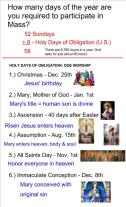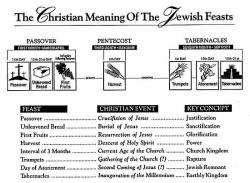What does God say about wisdom in the Bible?
The Bible offers numerous insights on God's perspective on wisdom. It portrays wisdom as a valuable and divine quality that is essential for living a righteous and meaningful life. Here are some passages from the Bible that highlight God's view on wisdom:
Proverbs 2:6 (NIV): "For the Lord gives wisdom; from his mouth come knowledge and understanding."
This verse acknowledges that wisdom is a gift from the Lord, emphasizing its divine origin.
Proverbs 9:10 (NIV): "The fear of the Lord is the beginning of wisdom, and knowledge of the Holy One is understanding."
This passage suggests that the foundation of wisdom is reverence for the Lord and understanding His ways.
Proverbs 16:16 (NIV): "How much better to get wisdom than gold, to get insight rather than silver!"
This verse contrasts the value of wisdom and insight with material wealth, highlighting the superiority of wisdom.
Colossians 2:3 (NIV): "In whom are hidden all the treasures of wisdom and knowledge."
This verse points to Christ as the source of all wisdom and knowledge, emphasizing His divine wisdom.
James 1:5 (NIV): "If any of you lacks wisdom, you should ask God, who gives generously to all without finding fault, and it will be given to you."
This passage encourages seeking wisdom from God, who is portrayed as a generous giver of wisdom to those who ask.
James 3:17 (NIV): "But the wisdom that comes from heaven is first of all pure; then peace-loving, considerate, submissive, full of mercy and good fruit, impartial and sincere."
This passage describes the characteristics of heavenly wisdom, emphasizing its purity and the qualities it exhibits.
Job 28:28 (NIV): "And he said to the human race, 'The fear of the Lord—that is wisdom, and to shun evil is understanding.'"
This verse underscores the connection between the fear of the Lord and wisdom, suggesting that wisdom involves both reverence for God and avoiding evil.
1 Corinthians 1:24 (NIV): "but to those whom God has called, both Jews and Greeks, Christ the power of God and the wisdom of God."
This verse portrays Christ as the embodiment of God's wisdom and power.
1 Corinthians 1:30 (NIV): "It is because of him that you are in Christ Jesus, who has become for us wisdom from God—that is, our righteousness, holiness, and redemption."
This passage highlights Christ as the wisdom from God, encompassing righteousness, holiness, and redemption.
These verses reflect the biblical perspective that wisdom is a divine gift and that seeking wisdom is an essential part of one's relationship with God. Wisdom is valued for its moral and practical guidance, and it is closely connected to the fear of the Lord and understanding God's ways. The Bible encourages individuals to seek and apply God's wisdom in their lives to lead a virtuous and fulfilling existence.
Biblical Wisdom: Insights from God's Word
The Bible is a treasure trove of wisdom, offering timeless insights into life, faith, and relationships. Throughout its pages, we find numerous verses that speak to the importance of seeking wisdom and applying it to our daily lives. These verses remind us that true wisdom comes from God and that it is essential for living a righteous and fulfilling life.
Gaining Wisdom from the Bible
The Bible provides a comprehensive guide to living a wise life. Here are some key principles to consider:
The Fear of the Lord: The foundation of wisdom lies in recognizing and respecting God's authority and power. This reverence leads to a desire to understand and follow His principles.
Seeking Godly Wisdom: Wisdom is not merely intellectual knowledge; it is a gift from God that comes through prayer, study of His word, and seeking counsel from others.
Applying Wisdom to Decisions: True wisdom is not just about knowing what is right; it is about applying that knowledge to our choices and actions.
Humility and Teachability: A wise person recognizes their limitations and is open to learning from others and from their own mistakes.
Discernment and Prudence: Wisdom enables us to make sound judgments, avoiding impulsive or foolish actions.
God's Perspective on Wisdom in the Bible
In the Bible, wisdom is not merely intellectual intelligence or worldly knowledge. It is a gift from God that comes from knowing and fearing Him. True wisdom is characterized by righteousness, understanding, and the ability to apply knowledge to make sound judgments.
Godly Wisdom vs. Worldly Wisdom
The Bible contrasts godly wisdom with worldly wisdom. Worldly wisdom is often based on self-interest, pride, and a desire for power. It can lead to manipulation, deception, and ultimately, destruction.
Godly wisdom, on the other hand, is rooted in humility, love, and a desire to please God. It seeks to build up others, promote justice, and bring peace.
The Role of Wisdom in Biblical Teachings
Wisdom is a central theme throughout the Bible. It is described as a precious treasure, a source of life, and a guide for righteous living. The Book of Proverbs, in particular, is a rich source of wisdom literature, offering practical advice on various aspects of life.
Examples of Wisdom in the Bible
The Bible provides numerous examples of individuals who were known for their wisdom, including Solomon, David, and Daniel. These individuals sought God's wisdom and applied it to their lives, leading to successful reigns, wise decisions, and a deep understanding of life's complexities.
Conclusion
In a world filled with uncertainties and challenges, seeking wisdom from God is essential for navigating life's complexities. By studying the Bible, applying its principles, and seeking God's guidance, we can cultivate wisdom that will lead us to a life of fulfillment, purpose, and peace.












